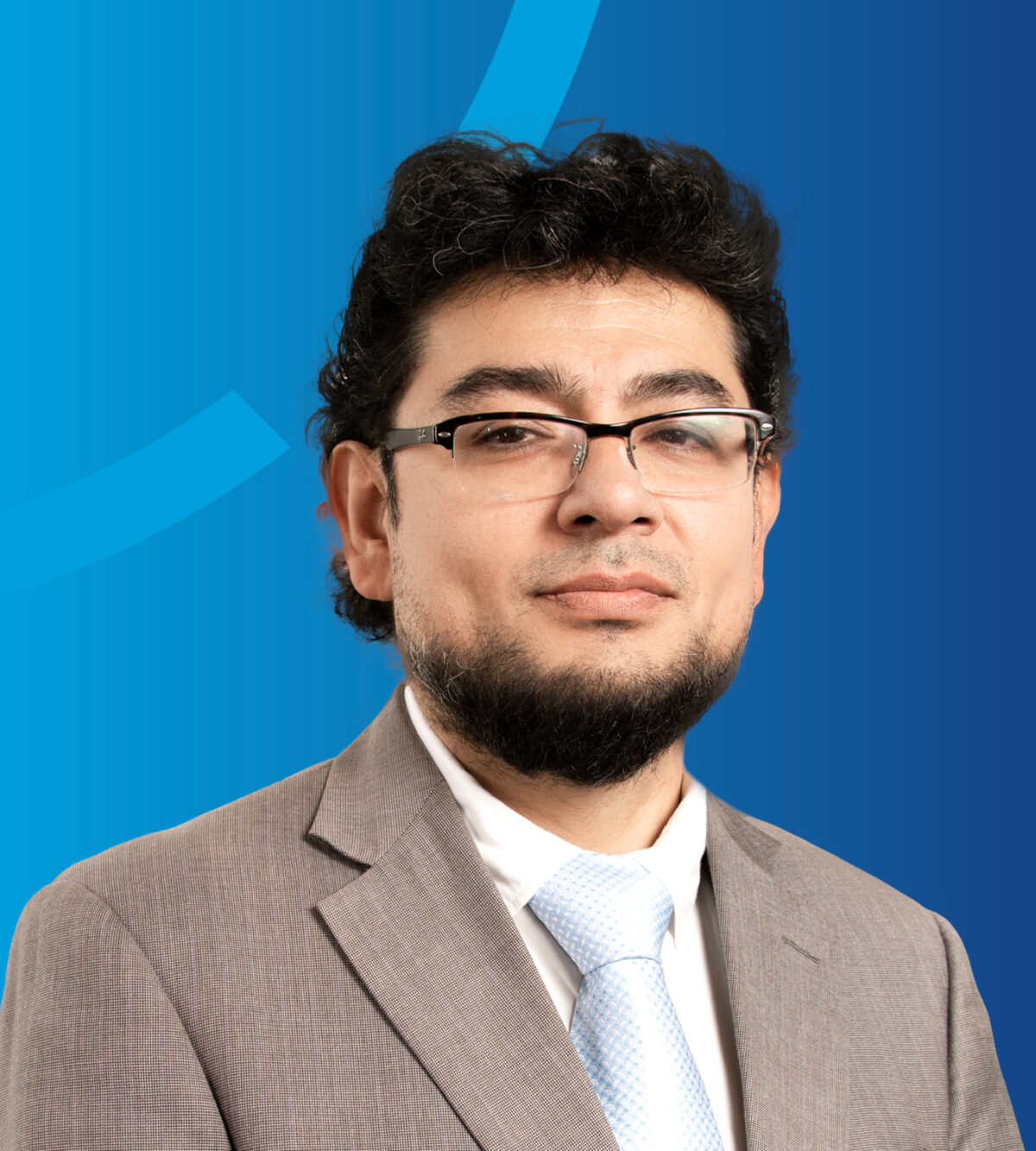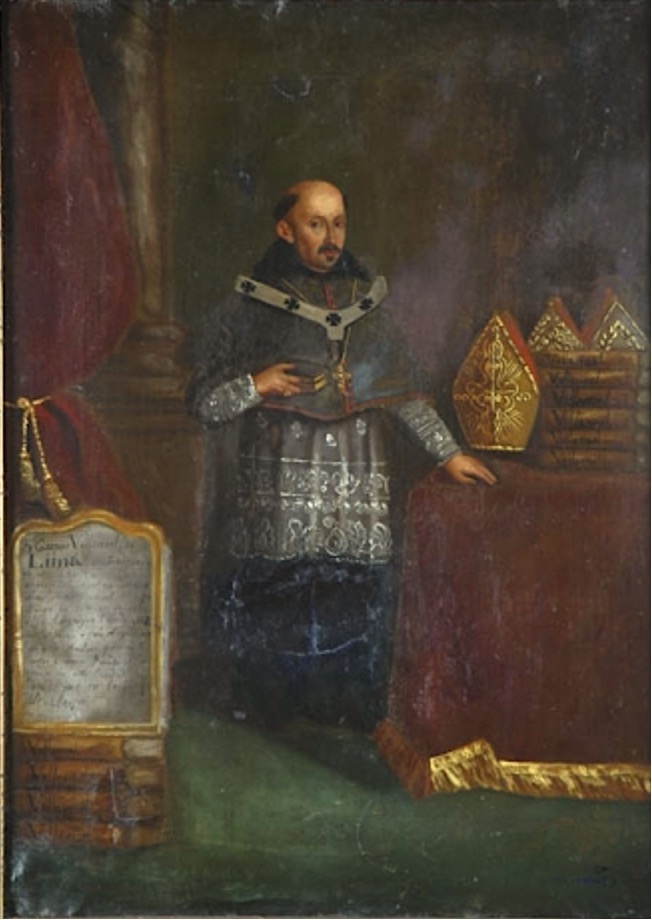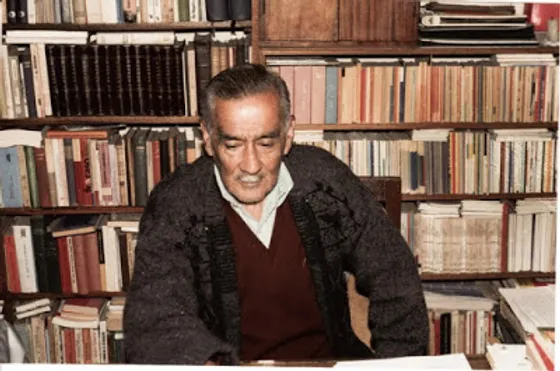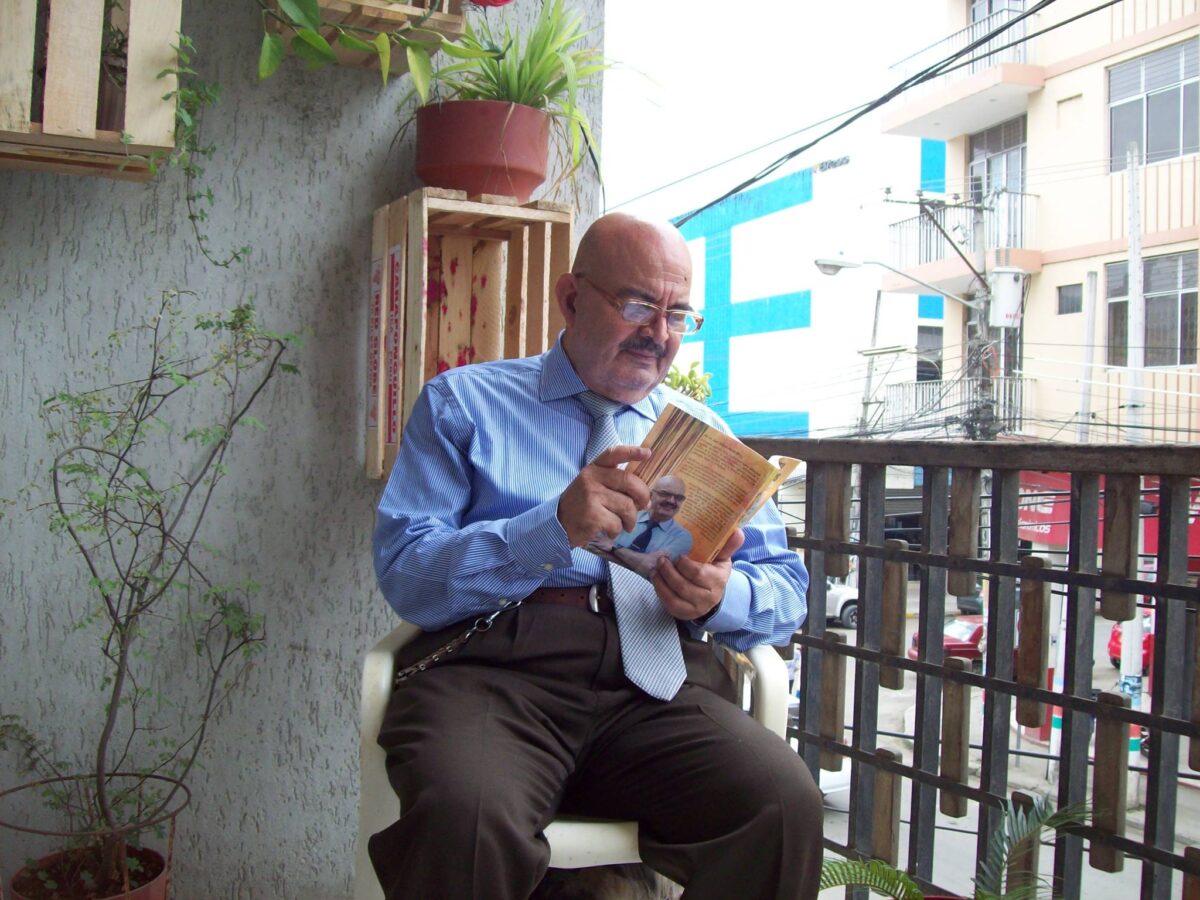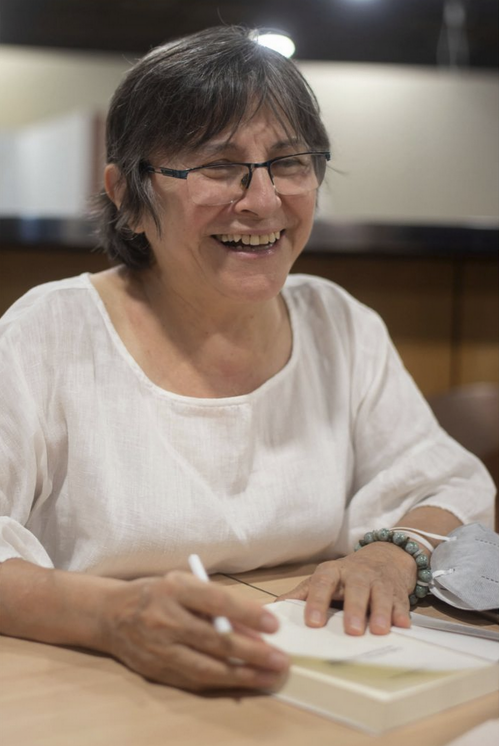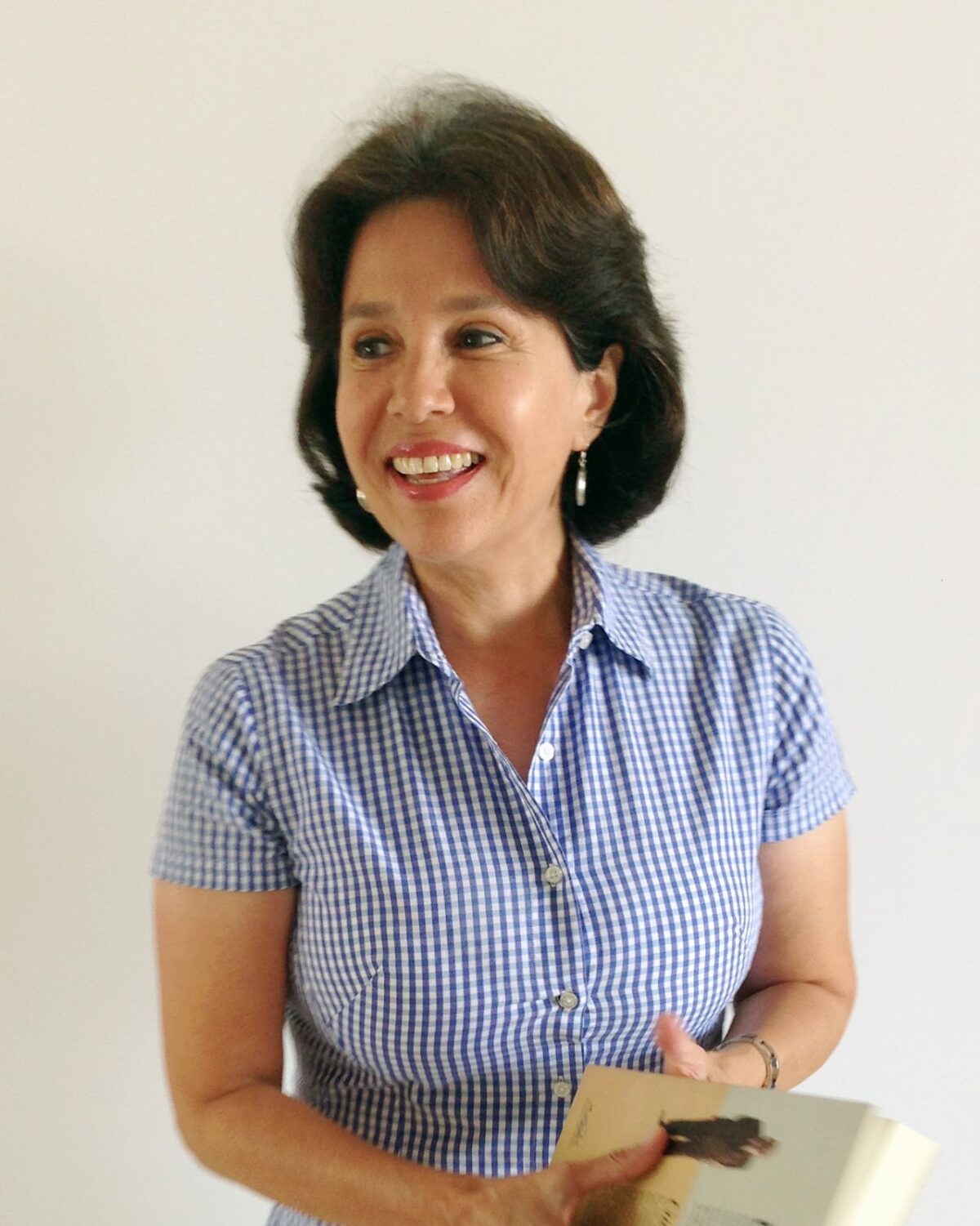Jerónima de Velasco de Ladrón de Guevara (Quito, c. 1630 – ?) was a renowned 17th-century poet from the Real Audiencia de Quito, now Ecuador, who gained widespread recognition for her eloquent Baroque poetry. Celebrated by contemporaries, including the famed Spanish playwright Lope de Vega, who praised her as “divine” in his Laurel de Apolo, she was admired for her intellectual prowess and poetic skill. Velasco’s work was included in Jacinto de Evia’s Ramillete de varias flores poéticas (1675), though much of her own writing has not survived. She spent most of her life in Pasto, Colombia, where she also managed family affairs and raised her children.
Continue reading “Jerónima de Velasco”Month: October 2024
Carlos Aulestia
Carlos Hugo Aulestia Páez (Quito, 1973) is an Ecuadorian writer, literary critic, and professor. He holds a Ph.D. in Latin American Literature from the Universidad Andina Simón Bolívar and is currently the dean of the Faculty of Communication, Linguistics, and Literature at the Pontificia Universidad Católica del Ecuador. Aulestia has authored works spanning fiction, poetry, and essays, including the novel La obscuridad (2016) and the short story collection Flaquita my love (1995). His research focuses on Ibero-American literature, with a notable contribution through his doctoral thesis on Ecuadorian poets Medardo Ángel Silva, César Dávila Andrade, and David Ledesma Vásquez.
Continue reading “Carlos Aulestia”Gaspar de Villarroel
Fray Gaspar de Villarroel (Quito, Kingdom of Quito, present-day Ecuador, 1587 – La Plata, Charcas, present-day Sucre, Bolivia, October 12, 1665) was an influential Augustinian priest, theologian, and archbishop in colonial Spanish America. Educated at the Universidad Nacional Mayor de San Marcos in Lima, he rose to prominence as a preacher in Spain, eventually being appointed Bishop of Santiago de Chile in 1637, where he led relief efforts during the 1647 earthquake. He later served as Bishop of Arequipa and Archbishop of La Plata (Charcas). Villarroel is also remembered for his significant theological writings, particularly Gobierno Eclesiástico Pacífico (1656), which addressed the relationship between church and state in the Spanish colonies.
Continue reading “Gaspar de Villarroel”Oswaldo Albornoz Peralta
Oswaldo Albornoz Peralta (Cuenca, May 8, 1920 – Quito, November 27, 2000) was an Ecuadorian historian, educator, and Marxist intellectual. Known for his critical works on Ecuadorian social history, Albornoz applied a Marxist lens to topics such as indigenous uprisings, labor movements, and the role of the church in Ecuador’s political development. He authored numerous influential books, including Historia de la Acción Clerical en el Ecuador (1963) and Bolívar: Visión Crítica (1990), and was a key figure in the Ecuadorian Communist Party. His contributions earned him national recognition, including an honorary doctorate from the Universidad Central del Ecuador.
Continue reading “Oswaldo Albornoz Peralta”Teresa Ala-Vedra y Tama
Teresa Ala-Vedra y Tama (Guayaquil, April 2, 1889 – Guayaquil, 1987) was an Ecuadorian journalist, poet, writer, painter, pianist, and composer. She co-founded the literary magazine La Ondina del Guayas (1907-1910), which provided a platform for women writers to express themselves through poetry, essays, and articles. Known for her artistic versatility, Teresa also excelled in watercolor painting and music composition, contributing significantly to Ecuador’s early feminist literary movement. Her work spanned various creative forms, including drama, with her children’s play En el jardín de los enanos published in 1956.
Continue reading “Teresa Ala-Vedra y Tama”Wadía Lauando Vélez
Wadía Antón Lauando Vélez (Portoviejo, 1940) is an Ecuadorian poet and novelist renowned for his works that explore rural life, nature, and mythology, with a focus on the cultural heritage of Ecuador’s coastal Montubio region. His notable publications, such as Corazón de colibrí (2006) and Laberinto de los sueños (2011), showcase his lyrical style and deep connection to the Manabí region. In 1994, he founded the Provincial Poetry Contest “El Poeta y Su Voz” while serving as President of the Casa de la Cultura in Manabí and later served as Director of its Literature Section, actively promoting Ecuadorian literature.
Continue reading “Wadía Lauando Vélez”María Leonor Baquerizo
María Leonor Baquerizo Díaz Granados (Guayaquil, 1960) is an Ecuadorian writer, professor, and empowerment coach. She is known for her contributions to Ecuadorian literature, particularly in the genre of short stories, where she explores psychological themes and human emotions. In addition to her literary work, she teaches at the Universidad Católica de Santiago de Guayaquil and ITS, and directs programs at Empowerment Coach Consultant. Her works, such as “Solo quería entender” and “Las grandes cosas se pierden en la niebla”, have earned her recognition as a significant figure in Ecuador’s literary scene.
Continue reading “María Leonor Baquerizo”Viviana Cordero
Viviana Cordero (Quito, August 3, 1964) is an Ecuadorian writer, playwright, and film director. She studied Modern Literature at the Sorbonne in Paris and began her career in 1990 by co-producing Sensaciones, the first Ecuadorian feature film made in 35mm. Cordero is known for her novels, including El Paraíso de Ariana (1994), El Teatro de los Monstruos (2000), and Mundos Opuestos (2010), as well as for her significant contributions to Ecuadorian theater and cinema. Her works explore themes of identity, memory, and societal roles, particularly focusing on women’s experiences.
Continue reading “Viviana Cordero”Martha Chávez
Martha Chávez Negrete (Guayaquil, 1967) is an Ecuadorian doctor, psychiatrist, and writer. She is known for her contributions to contemporary Ecuadorian literature, particularly in the genres of short stories and novels. Her notable works include Precisando el sentido (1999), Uno de estos tristes días virtuales (2003), and her acclaimed novel La memoria corre a mil (2008), which won third prize in the genre of novels for its exploration of memory and identity. In addition to her literary career, Chávez is also a university professor and a contributor to various literary magazines in Ecuador.
Continue reading “Martha Chávez”Renato Gudiño
Renato Gudiño (Quito, July 31, 1950) is an Ecuadorian author known for his versatility across multiple literary genres, including fiction, science fiction, psychological narratives, and noir. Educated in Ecuador and Romania, Gudiño’s works often explore themes of identity, transformation, and the human experience, drawing on his cosmopolitan background. His notable publications include La Transmutada (2004), Destino de Papel (2007), Cataplumes del Amor (2008), and El Edén de la Tenue Luz (2009), and his stories have gained international recognition, with Cataplumes del Amor being translated into Romanian as Delirul Iubirii (2014).
Continue reading “Renato Gudiño”Carolina Andrade
Carolina Andrade (Guayaquil, 1963) is an Ecuadorian writer, university professor, and journalist known for her poignant short stories and novellas. She studied in Mexico at the literary workshops of the Sociedad General de Escritores Mexicanos (SOGEM) and later earned postgraduate degrees in Education, Humanistic Studies, and Communication. Her notable works include Detrás de sí (1994), De luto (1999), and the novel A orillas de un relato (2024), which explore themes of death, existential absurdity, and human fragility. Andrade’s works have been translated into multiple languages and featured in prestigious literary anthologies.
Continue reading “Carolina Andrade”Denise Rosales
Denise Rosales (Guayaquil, 1954) is an Ecuadorian novelist and short story writer known for her only novel, Los vértices del triángulo (1994), which explores themes of love and desire through a bold narrative of a love triangle. Her work has been featured in anthologies such as Libro de posta (1983), Frauen in Lateinamerika 2 (1987), and Antología de narradoras ecuatorianas (1997). Rosales has lived in Milan, Italy, and is recognized as part of the movement of prominent Ecuadorian women writers who gained recognition in the 1980s and 1990s.
Continue reading “Denise Rosales”Martha Rodríguez Albán
Martha Rodríguez Albán (Loja, 1959) is an Ecuadorian fiction writer, literary scholar, and educator. She holds a Doctorate in Medicine and Surgery from the Universidad Católica de Santiago de Guayaquil and a Master’s in Cultural Studies from the Universidad Andina Simón Bolívar. As a fiction writer, she is known for her short story collections Nada más el futuro (1996), which won the Joaquín Gallegos Lara National Award, and Pero es después, bajo el sol (2001). In the field of literary criticism, she authored Narradores ecuatorianos de los 50: poéticas para la lectura de modernidades periféricas (2009) and Crítica literaria y sociedad en el Ecuador (1930-2000) (2022). She currently teaches at the Universidad Central del Ecuador in Quito.
Continue reading “Martha Rodríguez Albán”Marcela Veintimilla
Marcela Veintimilla Carrión (Zaruma, 1961) is an Ecuadorian short story writer who gained recognition during the 1980s. She was part of the Advanced Literature Workshop at the Central Bank/Casa de la Cultura Ecuatoriana, Núcleo del Guayas, under the guidance of Miguel Donoso Pareja. Her debut collection, Cualquier cosa me invento para ver (1989), presents introspective and experimental narratives that explore identity, personal dilemmas, and societal expectations. Her work has been included in notable anthologies.
Continue reading “Marcela Veintimilla”Livina Santos
Livina Santos (Guayaquil, 1959) is an Ecuadorian writer and educator known for her contributions to feminist literature in Ecuador. She gained recognition with her short story collection Una noche frente al espejo (1989), which explores themes such as gender roles, societal repression, and existential issues through a feminist lens. A former member of the Advanced Literature Workshop at the Central Bank of Ecuador, she has also contributed to various literary anthologies. Alongside her literary career, Santos has taught literature and led numerous literary workshops, shaping the literary landscape of Ecuador.
Continue reading “Livina Santos”
